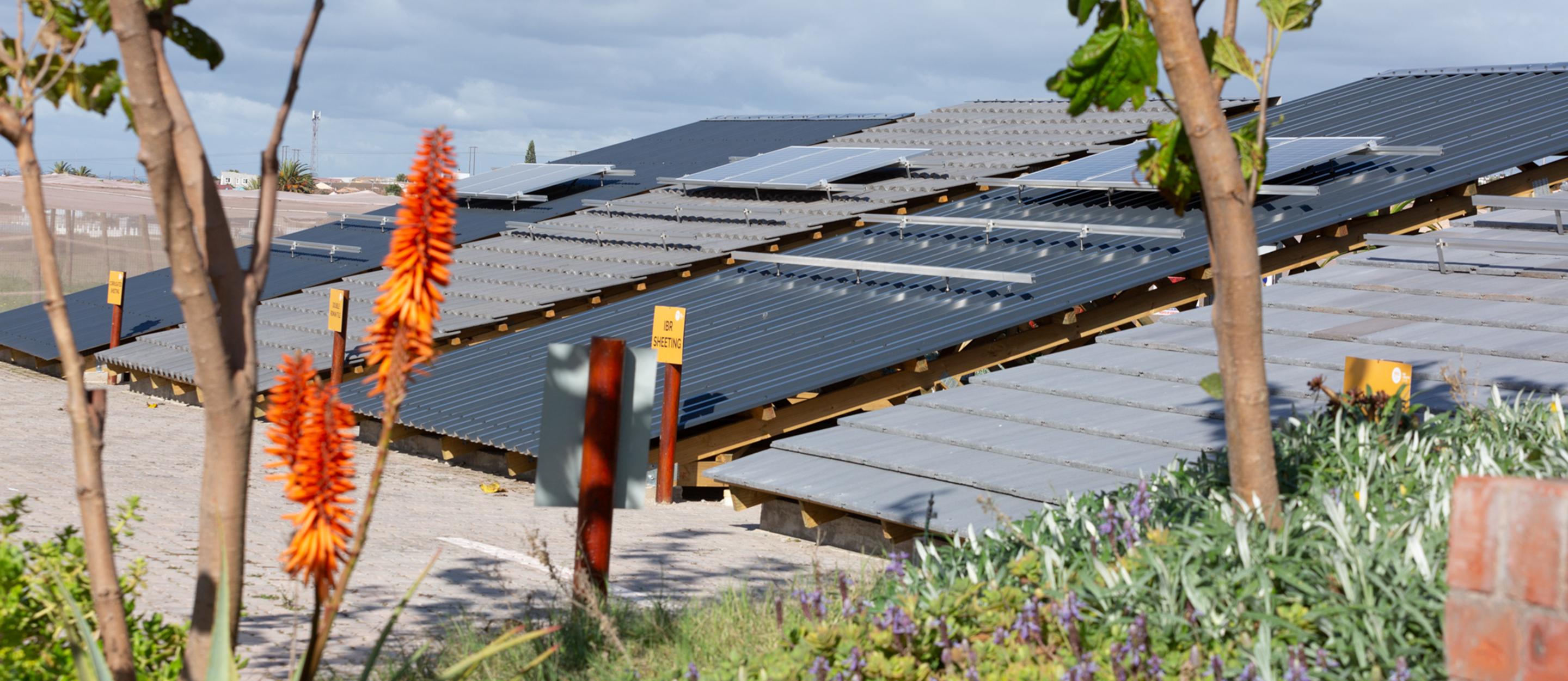What does the term ‘just energy transition’ mean? The word ‘transition’ describes a gradual switch-over to low-carbon technologies. The word ‘just’ denotes the need for this transition to avoid any negative impact on society, jobs and livelihoods. In other words, it is not simply about switching from coal and oil to renewable energy, but also about making the transition fair and inclusive for all.
 Jesse David Preyser
Jesse David Preyser
‘Cautiously optimistic’ about South Africa’s energy situation
South Africa’s progress and challenges on the road to a green energy future: Aalia Cassim, Acting Chief Director of Microeconomic Policy at the National Treasury of South Africa, in an akzente interview
Dr Cassim, what is the energy situation in South Africa?
The last few years have been characterised by rolling power cuts – and that naturally goes hand in hand with a slowdown in economic activity that adversely affects the gross domestic product (GDP). In practical terms, this has an impact on small businesses and on people’s everyday lives. The South African Government has attempted to solve the energy crisis by initially introducing private sector participation in energy markets and subsequently scaling up the number of private renewable energy producers that feed into the grid while fast-tracking state procurement of renewable energy. There has been significant progress in this regard over the last three years.
How has this progress been achieved in South Africa’s energy transition?
There have been major changes in energy markets that have broad support within government. For example, a market reform has allowed the private sector to participate in the electricity markets by establishing an independent transmission entity. This was not previously possible because the state-owned electricity company Eskom had a monopoly. Eskom has also recently stepped up maintenance work, which is important given the state of the infrastructure. In addition, there are initiatives aimed at improving access to renewable energy in remote and underserved areas. One of these is the Renewable Energy Access Programme. A revised version of the Integrated Resource Plan was recently published for public comment. It maps out the path towards a diversified energy mix.
Is there any hope that the energy crisis is slowly coming to an end?
I think so, but the system is still vulnerable to disruptions. South Africa is struggling with an ageing fleet of coal-fired power stations as well as distribution infrastructure that has been poorly maintained, so there is still a lot to do before we can be confident that the energy supply is secure. ‘Cautiously optimistic’ would probably be the right term.
We are seeing a trend in South Africa towards clean technologies and fewer power outages. When will the country be carbon neutral?
At present, the country is working towards diversifying its energy mix, with additional renewable energy being fed into the grid. We are not yet at the point where old, high-emission power plants can be shut down on a large scale due to concerns around security of supply. Commitments have, however, been made to achieve the target of net zero carbon emissions by 2050. This will mean scaling up renewable energy and introducing energy-efficient innovations and practices. The energy crisis was the impetus for thinking about the implementation of new, clean technologies. The next step can be to focus on actually decarbonising the economy.
What is meant by the decarbonisation of South Africa?
This is the process of significantly reducing the amount of harmful CO₂ emissions caused by economic activities in South Africa. The aim is to protect the environment and combat climate change, but also to make the economy more sustainable and resilient. However, a certain sequence must be followed. The coal-fired power plants that currently produce the bulk of South Africa’s energy can only be decommissioned once we have stabilised the rest. We have seen over the last few years the serious impact that power outages have had on the South African economy. Therefore, thoughtful action is required and, above all, an orderly and well-managed transition to green energy.
 Aalia Cassim
Aalia Cassim
Dr Aalia Cassim is an Economist and Acting Chief Director of Microeconomic Policy at the National Treasury of South Africa.
What are the long-term benefits of decarbonisation for South Africa?
South Africa’s exposure to climate shocks, including flooding and drought, is significant and the importance of risk mitigation in this regard is critical to community wellbeing and economic prosperity. Climate change mitigation does, of course, have direct health benefits for communities living near coal mines. In terms of the economic benefits, investment in renewable energy and battery storage would have a positive impact on the construction sector and the steel industry, possibly opening up new markets for metals if the energy transition becomes mineral-intensive. Of course, the structure of the economy would also change if the demand for oil and gas falls, and one would need to factor in the EU’s Carbon Border Adjustment Mechanism (CBAM) requirements in order to support exports. The impact on the South African production of vehicles with combustion engines needs to be considered, as electric vehicles gain popularity. As such, there are opportunities for South Africa in these future markets, but the risks need to be carefully weighed to ensure an optimal outcome.
What role does the Deutsche Gesellschaft für Internationale Zusammenarbeit (GIZ) GmbH play in South Africa’s green energy transition?
GIZ plays a pretty crucial role in terms of providing technical assistance and training to reform the energy sector. The organisation has provided resources for specific interventions over a number of years including supporting the implementation of policies related to energy market reform, collaborating with government officials to design effective policy, offering structured training for government officials and the regulator, and undertaking advisory work to protect local eco-systems. The approach has been collaborative in nature, taking account of government priorities and providing advice in a specific context that becomes easy to implement.
Training for South Africa’s energy transition
South Africa and its energy transition: a journey to the Western Cape shows how young people are being integrated into efforts to transform the energy sector.
more